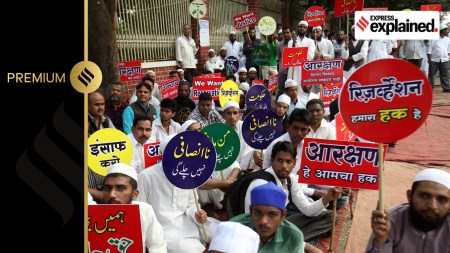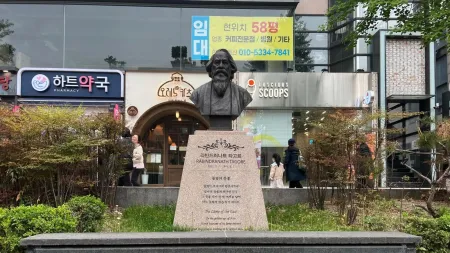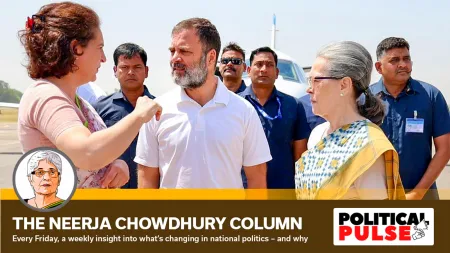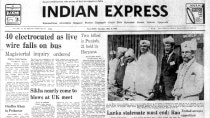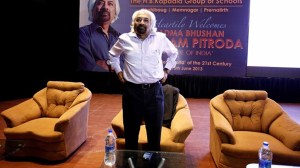- India
- International
Plague, flu, pox: how diseases meet politics
In India, 18 million people died in the Spanish Flu pandemic, the greatest loss in absolute numbers of any country in the world. The uncaring British response fuelled resentment.
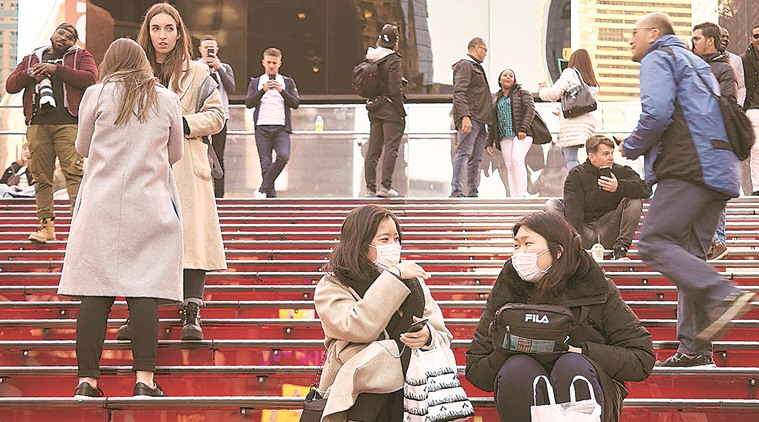 At Times Square, New York. Could first effect of coronavirus be seen in US polls? (AP)
At Times Square, New York. Could first effect of coronavirus be seen in US polls? (AP)
(Written by Rajesh M Parikh)
Viruses are the most political of creatures. Machiavellian in their machinations and Maoist in their ability to retreat only to advance again, they can bring down empires faster than human revolutions. They are the true WMDs capable of regime change.
Europe
The bubonic plague of the 14th century caused by the bacterium Yersinia pestis changed the political order in Europe in a manner that no organised human effort could have accomplished. The tremors of that upheaval continue to be felt over 500 years later.
Prior to the pandemic, Britain was overpopulated with a high rate of unemployment. This created enormous wealth for the landowning class as labour was easily available and hence cheap. The plague killed over a third of the peasant population, increasing labour costs. The feudal classes drafted laws such as the Ordinance of Labourers in 1349. The ordinance ensured that the peasant class worked for the same wages that prevailed five or six years ago. Those demanding just wages were imprisoned, causing a major conflict between the political and social classes.
Prior to the plague, the Roman Church dominated governments. The Pope was more powerful than royalty. The plague led many Catholics to question their faith. Their priests had told them that the plague was a result of divine retribution. However, priests themselves were succumbing to the plague. This caused unprecedented loss of faith and rage against the Church. Thus, among the most important political effects of the plague were the weakening of the Church and of the State and a gradual severance of the mutually self-serving bond between them. This paved the way for the Protestant Reformation and the rise of nation-states independent of the Church’s influence. This situation would have been unthinkable prior to the bubonic plague.

North and South America
The Americas remained free of measles and smallpox until the arrival of European colonists between the fifteenth and eighteenth centuries. Smallpox was prevalent in Spain and the conquistadors carried the virus to the Americas. In 1519, an epidemic of smallpox broke out in the Aztec capital Tenochtitlan in Mexico, in the wake of its conquest by the Spanish army led by Hernan Cortés, which had with them an African slave suffering from smallpox. The epidemic, and those that followed, eventually killed more than half of the native population. With an army of fewer than 900, Cortés would never have conquered Mexico without the powerful smallpox virus.
In the 150 years that followed Columbus’s arrival in 1492, the Native American population of North America was reduced by 80 per cent by measles, smallpox and influenza. The intentional distribution of blankets infected by European patients to Native Americans further contributed to their rapid decline. The West was won using viruses for bioterrorism rather than the whitewashed Hollywood accounts of the bravery of cowboys.
The Spanish Flu changed the role of women forever as they entered the industrial workforce in large numbers to compensate for the loss of men in the pandemic. Women also began to assume leadership roles and became an economic force that demanded participation in decision making, leading to the right to vote in 1920.
With COVID-19 causing higher mortality rates in the elderly, will there be a progressive shift in US politics? Younger voters tend to be Left leaning. The elderly may not risk coming out to vote this November. How will that affect the US presidential election? President Trump has already been accused by several political commentators of being more worried about the effect of the pandemic on his electoral prospects than on the well-being of the nation.
India
In India, 18 million people died in the Spanish Flu pandemic, the greatest loss in absolute numbers of any country in the world. The uncaring British response fuelled resentment. Mohandas Gandhi himself contracted the flu in 1919. He wrote, “I could not at that time sufficiently raise my voice at meetings. The incapacity to address meetings standing still abides. My entire frame would shake, and heavy throbbing would start on an attempt to speak standing for any length of time.”
In the Pale Rider: The Spanish Flu of 1918 and How it changed the World, British science writer Laura Spinney postulates that Gandhi’s succumbing to the flu contributed to his inability to control the mobs protesting the Rowlatt Act of 1919 which extended censorship and other repressive measures beyond the war. The massive protests against the Act included the peaceful gathering at Jallianwala Bagh, where Brigadier Reginald Dyer ordered bullets into an unarmed crowd of protesters, killing over 500 and injuring twice that number. That massacre began the end of British rule in India. With India’s Independence, other British colonies intensified their struggles for independence, dramatically altering global politics.
Dr Parikh is Director of Medical Research and neuropsychiatrist at Jaslok Hospital & Research Centre in Mumbai, and
co-author of The Coronavirus: What You Need To Know About The Global Pandemic (Penguin 2020)
EXPRESS OPINION
More Explained
May 08: Latest News
- 01
- 02
- 03
- 04
- 05



